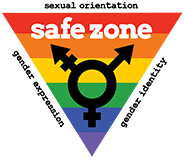
I recently attended the Bridges out of Poverty training and it was a great learning experience. The exciting thing was that many of the tools they gave us, we have already implemented in our Residential Program. It is my goal as the Director of Residential Services to identify the unique barriers our clients may face and create a program that best meets the needs of the clients we work with. Domestic violence impacts all socio-economic groups and this includes individuals who come from generational poverty. In addition to the trauma a person experiences due to abuse, a person who is also living in poverty will face even more challenges.
In the training, we discussed the hidden rules of poverty, the differences between situational and generational poverty, and how vital it is as providers to recognize the reality our clients face. If a client does not have access to reliable transportation, healthcare, childcare, or a livable wage job, it is extremely overwhelming to not only leave an unsafe situation, but also then to be able to put all the pieces together in order to start again. Working with clients who come from generational poverty has given me and the Residential staff insight into the strength it takes to face all of these challenges, yet still rise above them. Building honest and caring relationships with our clients, taking the time to really listen to stories and experiences is the foundation for case-management and advocacy in our program. We know that we cannot see things through our own lens, but through theirs, in order to support our clients fully. The Bridges out of Poverty training teaches so many skills on how to not only understand clients better but how to understand ourselves so that we may be better helpers.
Oppression in all its forms affects each one of us. Classism and poverty frequently overlap domestic and sexual violence. It is important to consider all the forms of oppression that may be affecting our clients and work to ensure we are providing intersectional services and intersectional advocacy. If you’d like more information about our services our how our case management could help you, give us a call at 815.756.5228.



